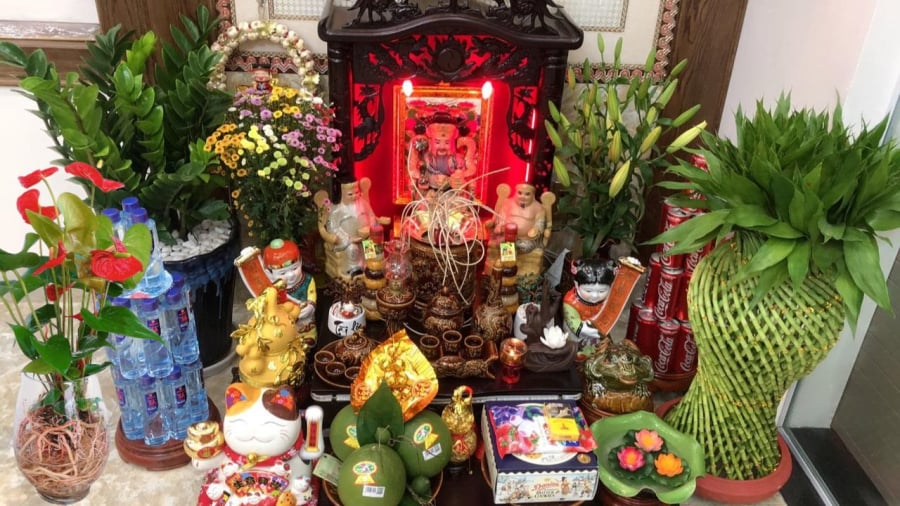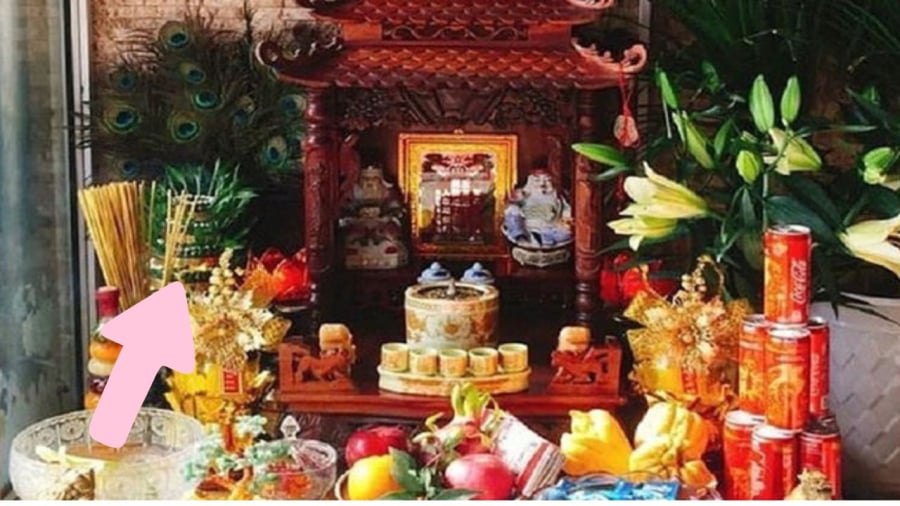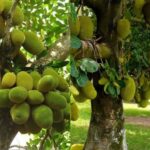The God of Wealth Altar: A Unique Feature in Vietnamese Culture
The altar of the God of Wealth, or ‘ban thần tài’ in Vietnamese, is a unique feature in Vietnamese culture and differs significantly from Buddhist altars or ancestral shrines. Notably, the God of Wealth altar is placed close to the ground, in stark contrast to the elevated position of Buddhist and ancestral altars. Additionally, it is typically located near the entrance of a home or business, a bustling area with constant foot traffic.
Despite its small size, the God of Wealth altar is often accompanied by lush green potted plants that thrive year-round, adding a touch of nature to the space.
The Significance of Plants at the God of Wealth Altar
In Vietnamese culture, the God of Wealth is revered as the deity who brings prosperity and success in business ventures. The presence of plants at the altar serves a dual purpose: to enhance the aesthetic appeal of the space and to attract positive energy and wealth. These plants are believed to possess auspicious qualities, inviting good fortune and abundance into the home or workplace.
The altar’s strategic placement near the entrance, where natural light and fresh air abound, is ideal for welcoming positive energy into the space. The plants help regulate the flow of energy and contribute to a healthier and more harmonious environment.
Furthermore, the addition of greenery prevents the altar from appearing lonely and forlorn, creating a more inviting and aesthetically pleasing space.
From a feng shui perspective, the combination of the God of Wealth altar and lush plants forms a powerful duo, attracting good luck and prosperity for the occupants of the home or business.

Feng Shui Plants: Enhancing Aesthetics and Inviting Good Fortune
Considerations for Plants at the God of Wealth Altar
When selecting plants for the God of Wealth altar, it is customary to choose varieties known for their auspicious qualities and ability to attract wealth. Popular choices include money plants (also known as ‘kim ngân’ or ‘kim tiền’ in Vietnamese), jade plants, lucky bamboo, and money trees. These plants are believed to symbolize prosperity and good luck.
Opting for aquatic plants or those grown in water is considered even more auspicious, as they create a vibrant and prosperous environment, according to feng shui principles.
It is essential to maintain the health and vitality of the plants at the altar. Regular care and attention are required to ensure the plants remain lush and vibrant. Keep the pots clean and free from dust and debris, and promptly address any leaf discoloration or other signs of distress. Ensure that the soil and water remain contained within the pots to avoid creating a mess.
It is also crucial to select appropriately sized plants that complement the altar without overwhelming it. If the plants show signs of distress, relocate them to a more favorable environment.
When lighting incense, take care to avoid directing the smoke directly at the plants, as this can hinder their growth and even cause harm.

Aquatic Plants: A Harmonious Choice for the God of Wealth Altar
Important Considerations for the God of Wealth Altar
When setting up the God of Wealth altar, ensure it does not directly face a mirror, chandelier, bathroom, or sink. These elements are believed to disrupt the positive energy flow and bring bad luck.
Given the altar’s proximity to the entrance, take precautions to prevent young children from tampering with it. During the first 100 days after establishing the altar, it is considered auspicious to light incense every morning to attract good fortune.
If there is already an existing ancestral altar with a deity representing the earth god (‘thổ địa’ in Vietnamese), it is advisable not to include this deity on the God of Wealth altar to avoid duplication.
This information is based on traditional beliefs and practices and may vary depending on regional customs and personal interpretations.
The Secret to a Prosperous Home: Unveiling the Mystique of the Jackfruit Tree
The jackfruit tree is a majestic and generous tree, offering not only beautiful timber but also delicious and renowned fruit. However, in the past, people were reluctant to plant jackfruit trees in front of their houses. This reluctance may stem from a variety of reasons, perhaps related to the size and spread of the tree, or even cultural beliefs and superstitions. Nonetheless, the jackfruit tree remains a valuable and beloved part of many cultures, with its wood and fruit continuing to be prized and sought after.







































